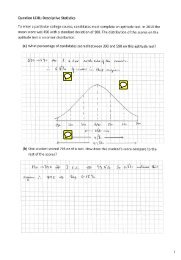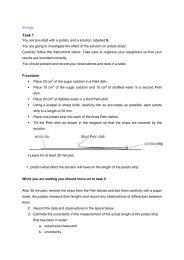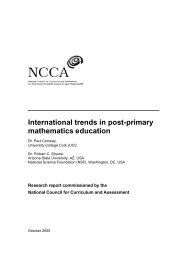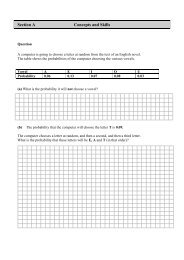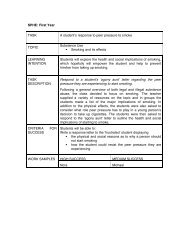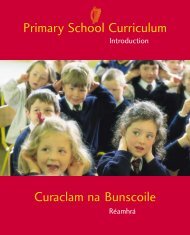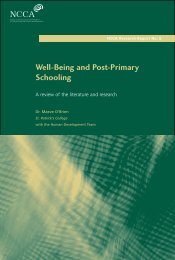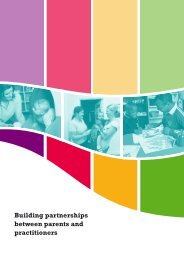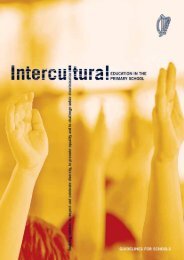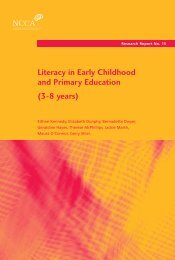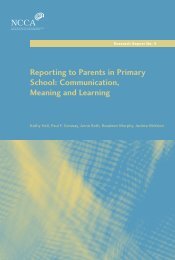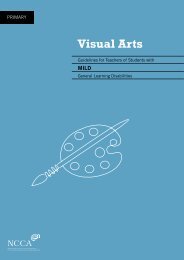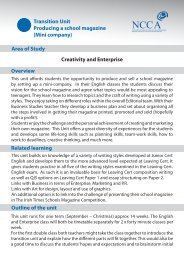Up and Away - National Council for Curriculum and Assessment
Up and Away - National Council for Curriculum and Assessment
Up and Away - National Council for Curriculum and Assessment
You also want an ePaper? Increase the reach of your titles
YUMPU automatically turns print PDFs into web optimized ePapers that Google loves.
24<br />
The Silent (or non-verbal) Period<br />
Children who find themselves immersed in a new world of meaningless words will often take time to<br />
regain a sense of control over social interactions.<br />
The typical stages are:<br />
1. Continuing to use the mother tongue.<br />
2. Not talking at all.<br />
If they try 1 <strong>and</strong> it fails to bring results, they may then lapse into 2.<br />
Younger children tend to maintain their silence <strong>for</strong> longer periods than older children.<br />
Children find alternative means of communicating during their silence by:<br />
✓<br />
✓<br />
✓<br />
Physically turning to teacher to attract attention.<br />
Bringing/holding up objects to show comprehension.<br />
Using facial expressions to indicate feelings.<br />
Bringing objects to seek help.<br />
Looking upset or whimpering when unhappy.<br />
Joining in fun by imitating other children.<br />
Actively observing the activities of other children.<br />
! Points to remember!<br />
Children in the Silent Period stop TALKING but do not stop COMMUNICATING.<br />
Watch ‘silent’ children <strong>and</strong> you will quickly learn to underst<strong>and</strong> their non-verbal communication.<br />
Watch out <strong>for</strong> other children imitating the ‘silence’.<br />
The observation checklist on the next page allows the teacher to monitor a child’s responses <strong>and</strong> reactions<br />
in the absence of verbal communication.<br />
If the teacher identifies that the child is carrying out any of the behaviours listed in the checklist <strong>and</strong> that<br />
there is steady development in the child’s engagement in the classroom, then he/she may assume that this<br />
period will come to an end when the child is ready to communicate orally.<br />
A Silent Period is common in language learning<br />
<strong>and</strong> does not necessarily indicate a learning<br />
problem.<br />
Emphasising the situation by referring the child<br />
<strong>for</strong> psychological assessment can make the<br />
matter worse.<br />
When children emerge from the Silent Period<br />
they demonstrate the learning that has taken<br />
place.<br />
Be careful about assuming that there is a<br />
learning problem.<br />
Several OECD studies in European countries<br />
reported that:<br />
‘There is an overrepresentation of <strong>for</strong>eign<br />
children in special needs education’.



